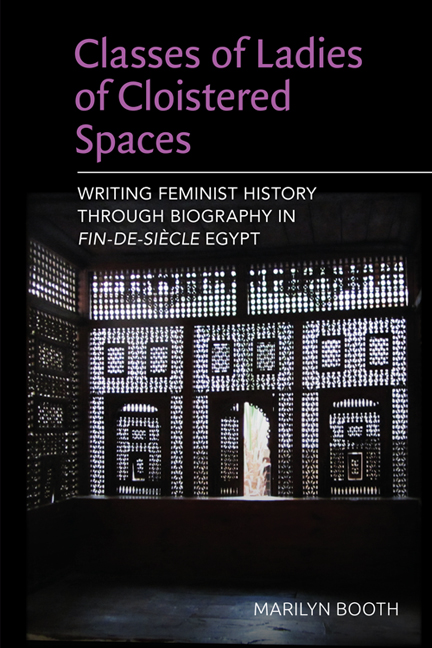Book contents
- Frontmatter
- Contents
- Acknowledgements
- Dedication
- I Pearls Scattered: An Introduction
- II A Women's World History, in the World of Arabic Letters: A Reader's View
- III Founding Mothers, Speaking Sisters: Lineaments of Community in History
- IV Writerly Pursuits: A Compiler's Archive
- V A Beckoning Compass, Circulating Lives: The Bustani Encyclopedia and Other Nineteenth-century Sources
- VI Interlocutors? Men Authoring Women's History in the 1890s
- VII Framing a History of the Present: or, Did the Pearls Scatter to the World's Fair?
- VIII Violent Romances: The Bodily Drama of Patriarchal Trauma
- Conclusion: A World of Women, Feminist History and the Importance of the Feminine Signature
- Appendix I: Translations
- Appendix II: List of Fawwaz's Pearls
- Notes
- Bibliography
- Index
VIII - Violent Romances: The Bodily Drama of Patriarchal Trauma
Published online by Cambridge University Press: 05 August 2016
- Frontmatter
- Contents
- Acknowledgements
- Dedication
- I Pearls Scattered: An Introduction
- II A Women's World History, in the World of Arabic Letters: A Reader's View
- III Founding Mothers, Speaking Sisters: Lineaments of Community in History
- IV Writerly Pursuits: A Compiler's Archive
- V A Beckoning Compass, Circulating Lives: The Bustani Encyclopedia and Other Nineteenth-century Sources
- VI Interlocutors? Men Authoring Women's History in the 1890s
- VII Framing a History of the Present: or, Did the Pearls Scatter to the World's Fair?
- VIII Violent Romances: The Bodily Drama of Patriarchal Trauma
- Conclusion: A World of Women, Feminist History and the Importance of the Feminine Signature
- Appendix I: Translations
- Appendix II: List of Fawwaz's Pearls
- Notes
- Bibliography
- Index
Summary
When she married ‘Abduh, it was the end for her. He prohibited her from singing whereupon he stepped forth and regained his previous fame … People were all sorrowful that the radiance of Almas no longer met their gazes. Many mourned this marriage.
… The subject of this biography got pregnant by him but she never gave birth for instead, God gathered her in. She died in pregnancy when she was in the fresh prime of her youth … the great and the small of Egypt came together, massed, to commemorate her funeral, men's heads bowed as the procession passed, the soil watered by rivers of bitter tears.
… Truly, affliction attached itself to her, and she regretted when regret no longer has any utility, to the point that it was said that the distress she knew was the true cause of her death.
‘Almas’, in Pearls ScatteredThis biography commemorates a woman whose talents, earnings, ambitions and success as an artist were cruelly destroyed. An ambitious and avaricious man suppressed his major artistic rival through marriage as an institution of obedience and surrender bespeaking an implacable gendered heirarchy. Almas died in childbirth; but, comments Fawwaz, ‘it was said that the distress she knew was the true cause of her death’ (78). If Almas ‘plundered Egypt's riches’ with her sweet yet mournful voice, ‘Abduh al-Hamuli plundered not only her riches but her very selfhood, and her life.
Initially, Almas's is a narrative of ‘emergence’ and ‘ascent’, an upward trajectory from childhood in poverty to a celebrated and lucrative career. But her very success, and the marriage that resulted from it, reverses the trajectory. In Fawwaz's narrative, Almas plummets into imposed silence, economic deprivation and powerlessness (as her husband takes and loses her savings), and death. Ascent occurs through her talents and work; descent and tragedy follow – and are implied to be the outcome of – al-Hamuli's exertion of authority over her abetted by a patriarchal regime of husbandly control and masculine freedom of action that in her case induce trauma.
- Type
- Chapter
- Information
- Classes of LadiesWriting Feminist History through Biography in Fin-de-siecle Egypt, pp. 294 - 314Publisher: Edinburgh University PressPrint publication year: 2015



